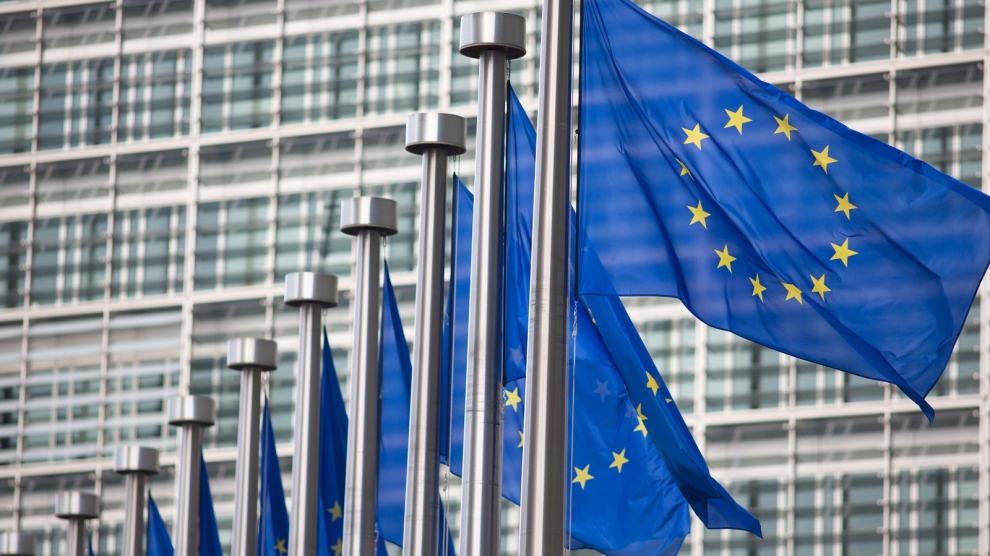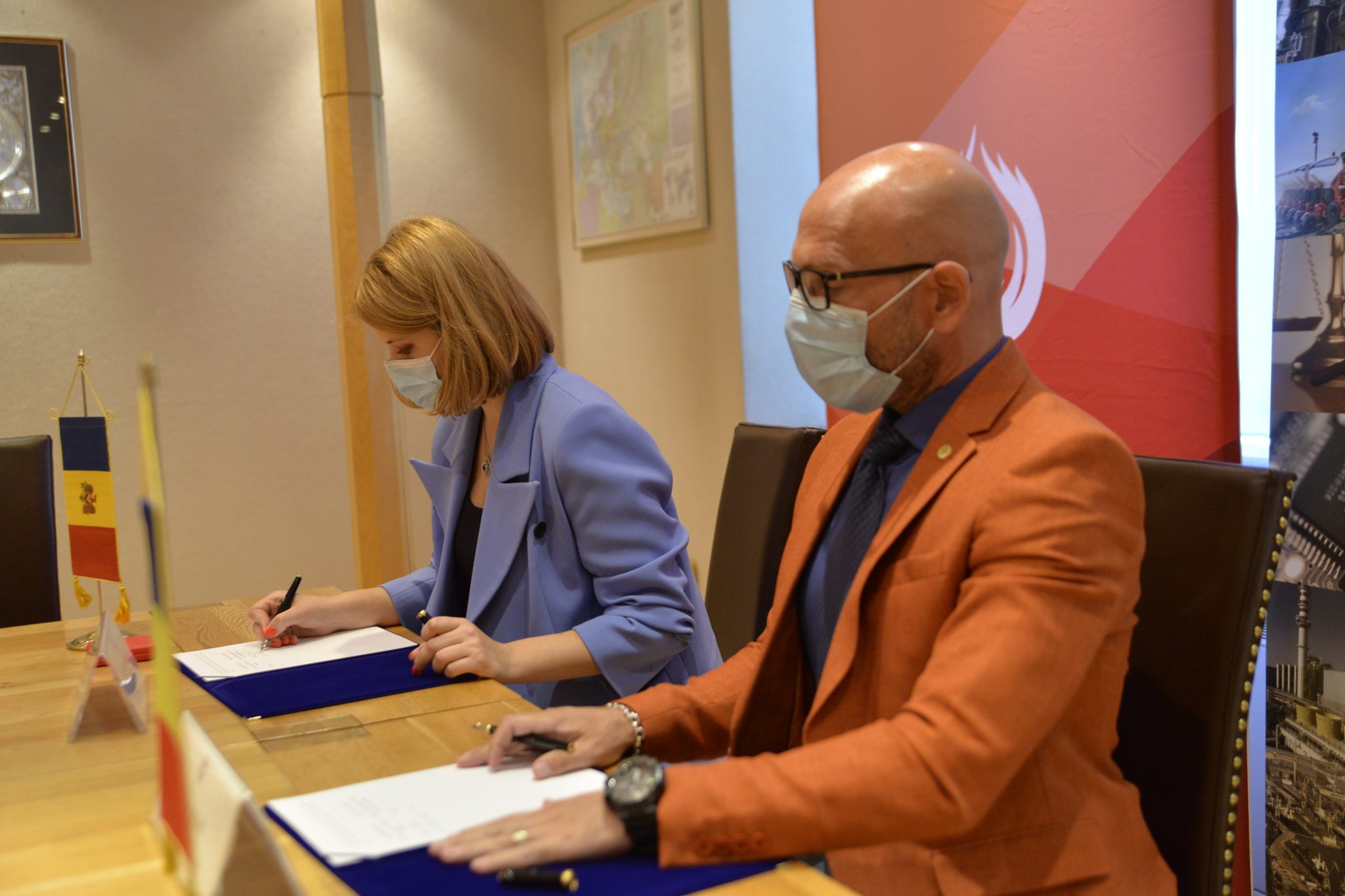Economy
Surgut Neftegaz Tries Crashing MOL'S Doors
Reading Time: 3 minutesThe Kremlin-connected oil company Surgut Neftegaz has launched judicial proceedings in Budapests metropolitan court against Hungarian MOL, the most successful private oil and gas company in Central Europe. The Russian company alleges that MOL refuses to register Surgut as a shareholder
By Vladimir Socor
The Kremlin-connected oil company Surgut Neftegaz has launched judicial proceedings in Budapest’s metropolitan court against Hungarian MOL, the most successful private oil and gas company in Central Europe. The Russian company alleges that MOL refuses to register Surgut as a shareholder (Reuters, MTI, June 4).
Surgut had acquired 21.2 of MOL’s shares -the single largest stake in the company – on March 30 surreptitiously from Austria’s OMV. That transaction sparked a political scandal as well as marking a bold step in Russian expansion into the energy sector on European Union territory (EDM, April 3, 6).
Surgut’s move appeared designed to prepare a takeover of MOL by the cash-rich Surgut from inside, through accumulation of further shares and capture of seats on the board. The Russian company sought representation and voting rights at MOL’s annual general meeting (AGM) of shareholders on April 23 and claimed a right to nominate members of the board.
Under Hungarian law, however, the acquisition is subject to approval by the regulatory agency, the Hungarian Energy Office. The latter is entitled to ask and receive relevant information about any new foreign entrant that acquires 5 percent or more shares in a local company. It is only after the Energy Office’s approval that the new entrant may be included by the local company into its share register (Heti Vilaggazdasag, Nepszabadsag, Vedomosti, June 5).
Following the March 30 acquisition, Surgut has duly applied to the Hungarian Energy Office for approval. However, Surgut has apparently thus far failed to provide crucial information about the company. At least some of the undisclosed information is that pertaining to the company’s actual shareholders.
Surgut is deeply non-transparent even by Russian standards. According to "market rumors," the Russian Prime Minister Vladimir Putin is believed to hold a substantial share, directly or through intermediaries such as Gennady Timchenko’s Gunvor company. Surgut’s ownership structure includes 42 percent in treasury shares held by an undisclosed entity or entities, with the remainder in an obscure system of cross-shareholdings. Surgut’s CEO Vladimir Bogdanov is a long-time Putin confidant. Bogdanov has recently been nominated to the board of the state-owned Rosneft under Deputy Prime Minister Igor Sechin’s chairmanship (Interfax, March 30; Wirtschaftsblatt, March 31; Vedomosti, Wall Street Journal, April 1).
Nor has Surgut explained why it paid OMV double the going price for MOL shares when it acquired the share package from the Austrian company. Unprecedented in itself, and stunning to market analysts, such overpayment could only be explained by strategic designs on the part of Surgut and possibly allied Russian companies to take over MOL and expand further into Central Europe.
These and other questions that the Hungarian Energy Office presumably asked of Surgut remain unanswered thus far. Secrecy over ownership and concerns about how Surgut’s expansion could affect Hungary’s and the region’s energy security must be some of the causes for withholding regulatory approval of Surgut’s entry into MOL.
Initially, MOL had responded to Surgut’s move by announcing that the Russian company will be treated merely as a financial investor, as distinct from strategic investor; that is, Surgut could receive profit on that investment, but would not shape company policy and not sit on the board. Failing to meet legal and regulatory requirements, however, Surgut cannot qualify for entering MOL. Thus, for the time being at least, the Hungarian company does not have to make a decision on whether to include Surgut into MOL’s share register or not.
MOL adopts the position that Surgut’s acquisition is an unfriendly move, reflecting the Russian company’s intention to absorb MOL eventually through a process of vertical integration. Surgut’s own letter to MOL shareholders, issued on the eve of MOL’s annual general meeting of shareholders, had hinted at such a scenario.
At that AGM, shareholders introduced a set of corporate defenses, so as to prevent further encroachments on MOL by foreign state-connected, non-transparent foreign entities. Although expansion-bent Russian companies were not named, this is the source of concern in Hungary and throughout central and southeastern Europe. Without regulatory agency clearance and, therefore, without being entered into MOL’s share register, Surgut could not have been allowed to attend the AGM and indeed was not allowed in.
MOL shareholders approved changes to the Articles of Association, introducing more exigent criteria of transparency. Holders of more than 2 percent of MOL shares are now required to disclose the identity of the ultimate beneficiaries of their shares. To safeguard against hostile takeover attempts, 75 percent majorities shall henceforth be required for AGM approval of major decisions or removal of individual board members; and it shall not be possible to remove more than one board member at an AGM (MTI, Heti Vilaggazdasag, April 23, 24; Kommersant, Vedomosti, April 24).
These corporate defenses add to those adopted in 2007 and 2008 to forestall takeovers of MOL by Russian energy giants via third parties. MOL’s corporate defenses are buttressed by a national political consensus in Hungary to maintain this private company’s independence.
Economy
Moldova will receive a disbursement of 36 million euros as part of the the Economic Recovery Plan

This week, the European Commission approved the disbursement of 36 million euros in grant money for the Republic of Moldova. The announcement was made by Deputy Director-General for Neighbourhood Policy and Enlargement Negotiations at the European Commission, Katarina Mathernova, who paid an official visit to the Republic of Moldova between September 13-15, together with Managing Director for Russia, Eastern Partnership, Central Asia, Regional cooperation and OSCE, at the European External Action Service, Michael Siebert.
The EU officials had meetings with President Maia Sandu, Minister of Foreign Affairs and European Integration, Nicu Popescu, Speaker of Parliament, Igor Grosu, Prime Minister of the country, Natalia Gavrilita, as well as key representatives of Government, international financial institutions and the civil society, according to a press release issued by the Delegation of the European Union to the Republic of Moldova.
Beside such topics as the EU-Moldova relations and prospects, the priorities of the reform agenda of the new Moldovan Government, preparations for the Eastern Partnership Summit at the end of the year and the Transnistrian conflict settlement, the officials also discussed the EU assistance in support of reforms and the Economic Recovery Plan for Moldova, which was announced in June with a total EU support of 600 million euros over the next 3 years.
“The first measures under the Economic Recovery Plan will shortly materialize, with the expected disbursement of 36 million euros in grant money under budget support programmes to support the authorities’ efforts to fight against the consequences of the pandemic. Moldova can count on EU’s assistance on its path to reforms and to recovery, bringing tangible results to citizens,” Katarina Mathernova stated.
The plan is based on assistance provided by the European Union through various bilateral and regional instruments, aiming to mobilize the funds in the form of grants, loans, guarantees and macro-financial assistance.
“The Economic Recovery Plan for the Republic of Moldova involves much more, not just this financial support provided immediately. It must help digital transformation, strengthen infrastructure, energy efficiency, education and support small and medium-sized enterprises,” the EU official also said.
As Prime Minister Natalia Gavrilita informed, “The Economic Recovery Plan and the 5 flagship initiatives for Moldova in the Eastern Partnership will directly contribute to the reform and consolidation of institutions, stimulate long-term socio-economic development, bring direct benefits to citizens, and unleash new economic opportunities through promoting the green agenda and digitization. Small and medium-sized enterprises (SMEs) have been hit hard by the crisis. Promoting and diversifying access to finance and reducing collateral requirements will be essential in supporting economic operators. We are grateful to the EU partners who will launch two programs to support 50 000 independent Moldovan SMEs to adapt to the new conditions.”
President of the Republic of Moldova, Maia Sandu, welcomed the decision of the European Union to disburse about 745 million lei in grant money, as the official page of the President’s Office announced. “EU support comes after a long period of freezing of European assistance, caused by former governments. We managed to relaunch the political dialogue with the European Union and resume financial assistance. The Republic of Moldova is gradually regaining the trust of its strategic partners. This European support is also a signal of encouragement for the new Government team in its commitment to clean up the institutions, fight corruption and launch development programs in the country,” said Maia Sandu.
Photo: unknown
Economy
Romania and Moldova signed a partnership memorandum pledging to cooperate in promoting their wines

The Chamber of Commerce and Industry of Romania (CCIR) and the National Office for Vine and Wine (NOVW) of the Republic of Moldova signed, last week, a memorandum of cooperation on organizing joint promotional activities in the markets of common interest, as the CCIR announced.
China, Japan or the USA are just some of the markets targeted by the Romanian and Moldovan institutions. The memorandum also involves advertising activities for wines from common indigenous varieties, promoting the oeno-tourist region, developing a tourist route in the two states, exchange of experience, study visits, and mutual support in identifying new export opportunities. “We are very confident that this collaboration between our organizations will lead to sustainable economic growth and a higher degree of well-being among Moldovans and Romanians,” claimed Deputy Secretary-General of CCIR, Bogdan Visan.
On the other hand, Director of the NOVW, Cristina Frolov, declared that no open competition with Romania is aimed at the governmental level of the Republic of Moldova. “This request for collaboration is a consequence of the partnership principle. Romania imports 10-12% of the wine it consumes, and we want to take more from this import quota. Every year, the Romanian market grows by approximately 2.8%, as it happened in 2020, and we are interested in taking a maximum share of this percentage of imported wines without entering into direct competition with the Romanian producer,” the Moldovan official said. She also mentioned that Moldova aims at increasing the market share of wine production by at least 50% compared to 2020, and the number of producers present on the Romanian market – by at least 40%.

Source: ccir.ro
**
According to the data of the Romanian National Trade Register Office, the total value of Romania-Moldova trade was 1.7 billion euros at the end of last year and over 805 million euros at the end of May 2021. In July 2021, there were 6 522 companies from the Republic of Moldova in Romania, with a total capital value of 45.9 million euros.
The data of Moldova’s National Office of Vine and Wine showed that, in the first 7 months of 2021, the total quantity of bottled wine was about 27 million litres (registering an increase of 10% as compared to the same period last year), with a value of more than one billion lei, which is 32% more than the same period last year. Moldovan wines were awarded 956 medals at 32 international competitions in 2020.
Photo: ccir.ro
Economy
Moldova’s hope to be a top walnut exporter and its main difficulties

The Republic of Moldova has perfect weather conditions for growing walnut trees, that creating a great potential of walnut production and trade, especially on international markets, where the demand is way higher than the product’s supply. National and international experts believe that the country’s walnut production industry is on the verge of important transformations, which could lead to increased yields, quality and competitiveness worldwide.
According to authorities, Moldova exports 34-35 thousand tons of walnuts in shell, which is about 7% of the total export of fruit and 5% of the total export of horticultural products. The export value is assessed as being $120 million, that being 57-60% of the total fruit export value and about 50% of horticultural export value. Most of walnut crops are exported to the EU countries, such as France, Germany, the Netherlands, Romania and Austria. The country’s exports were among the world’s top 10 when it comes to the highest dollar value of the product during 2020.
Viorel Gherciu, Minister of Agriculture and Food Industry, pointed out that the production in the domestic walnut industry has increased by 55% in the last five years, which ranks Moldova among the main producers in the world.
“The biggest opportunity for this industry is that we are in the geographical proximity of the largest walnut import area in the world, which is the European Union, with almost 40% of total imports in the world. We are on the EU border, with privileged relations, with an Association Agreement. We already enjoy a good relationship in working with European importers, they trust our processors. A very close collaboration has been created and this is, in fact, the guarantee for those who invest in the area,” claimed the president of the Walnut Producers Association, Oleg Tirsina.
The data provided by the National Bureau of Statistics show that there are 34.7 thousand hectares of walnut plantations in the country. 20.90 hectares are represented by orchards. 75% of planted orchards are formed of old varieties trees. 30-35% of the exported production comes from orchards, the rest comes from individual farmers and plantations along the roads. This means that the quality of walnut production is not at its maximum potential. Developing commercial plantations through orchards modernization and extension of walnut varieties would provide double yield and better quality, experts say.
Governmental support in the form of subsidizing solutions, foreign investments and credit options are indispensable for the industry development. One of the financing options is the credit line of the European Investment Bank Project. Since 2016, 15 producers and processors of nuts, almonds and hazelnuts have benefited from these loans with the total amount of investments worth 8.7 million euros. A further extension of the project would provide another 60 million euros for the modernization of the horticultural sector in general and for harvesting organic walnuts in particular.
Photo: heymoldova.com





















